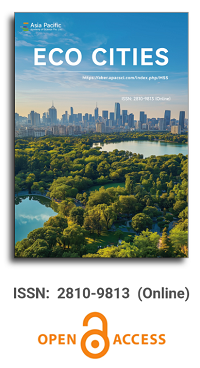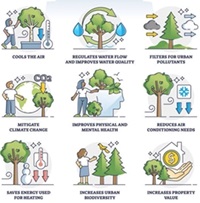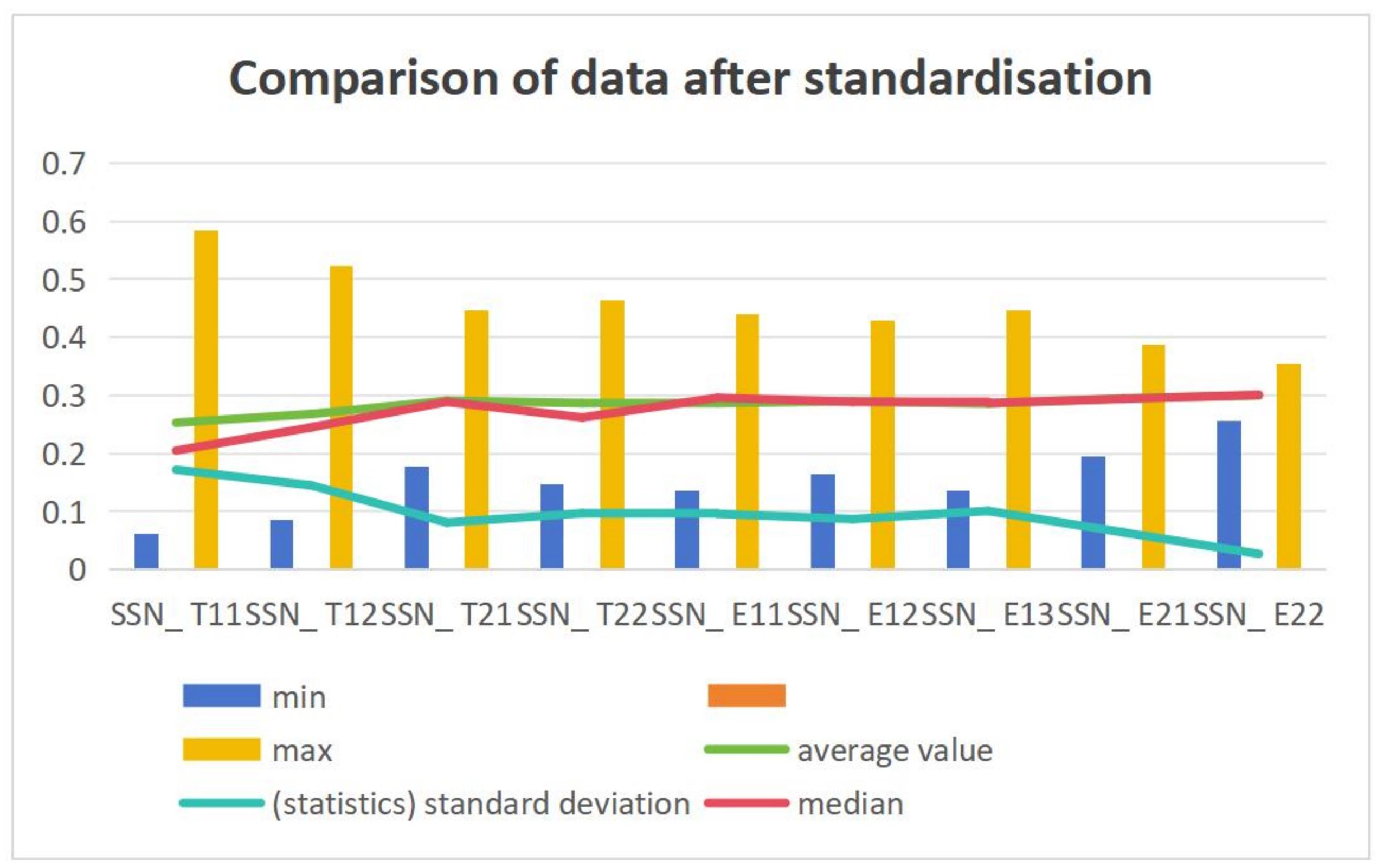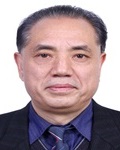


Unequal access to drinking water in the city of Doba (Chad): An urban political ecology perspective
Vol 6, Issue 1, 2025
Download PDF
Abstract
Within the context of climate change and other environmental stressors, water scarcity has become a major concern in urban areas of the Sahel region of Africa. Water is an important resource and its scarcity which is exacerbated by socio-economic inequalities has created unequal power relations and conflicts. From this guiding premise, this work seeks to examine challenges in ensuring effective drinking water supply and how they have reshaped relations in urban areas using the case of Doba. A mixed methods approach was employed and includes documentary research, a questionnaire survey with 120 purposively selected households, 11 in-depth interviews and a collection of water samples for quality analysis. Data collected was analyzed qualitatively and quantitatively while water quality analyses were conducted at the Sarh laboratory. Under the lens of the Urban Political Ecology (UPE) approach, results revealed that households drink water from boreholes (31%), open wells (48%), springs (8%) and pipe born water (20%). The physicochemical analysis showed an iron level of 0.24 mg/L in tap water and the turbidity rate of 48.20 Nephelometric Turbidity Units (NTU) in well water while bacteriological analysis gives a total aerobic chlorine level of 100 CFU/100 ml in all the waters sources analyzed. These inequalities results from poor state of infrastructure, climate change and socio-economic differences at the level of households. This has resulted to conflicts between the state water supplying institutions and dwellers and between dwellers themselves over water sources. This work has a policy implication as the provision of drinking water requires concerted efforts between all stakeholders.
Keywords
References
- Mohamed T, Moulay-Driss E. Water and climate change in the Maghreb: what adaptation strategies (French)? 2012; 260: 491–938.
- Dombor D, Mbaïndogoum D, Kem-Allahte J, Mahamat, A. Problématique de l’accès à l’eau potable dans la ville d’Abéché au Tchad (French). Vertigo. 2023. doi.org/10.4000/vertigo.41041
- UN Habitat. The State of African studies. A framework for addressing urban challenges in Africa, Nairobi. Un-Habitat. 2008.
- Dos Santos, S. Access to water in sub-Saharan Africa: Is the measure consistent with the health risk (French)? Environnement Risques et Santé. 2012; 11(4): 282-286.
- WHO-UNICEF. State of the world’s drinking water: an urgent call to action to accelerate progress on ensuring safe drinking water for all. World Health Organization. 2022.
- Chartier D, Deleage J. Updating political ecologies for a politics of the Anthropocene (French). Écologie & Politique. 2010.
- Kusi-Appiah, A, Mkandawire P. Political ecology of household water security among the urban poor in Malawi. Wellbeing, Space and Society. 2022; 3: 100109.
- Baron, C and Isla, A. Trading Water and Resource Accessibility Conventions. The case of Sub-Saharian African Cities. Groupement de Recherches Economiques et Sociales. 2004.
- Ruscaa M, Akosua S, Alex L, et al. An interdisciplinary political ecology of drinking water quality. Exploring socio-ecological inequalities in Lilongwe’s water supply network. GEOforum. 2017; 84: 138–146.
- World Bank. CHAD: Water and Sanitation Sector Note (ASA-P167723). Word Bank. 2017.
- African Development Bank. Drinking water supply and sanitation program in urban and rural areas in eleven regions of Chad (French). African Development Bank. 2018.
- Adirdir S. Access to drinking water for populations in the town of Ati in Chad (French) [Master’s thesis]. University of Yaounde; 2022.
- Frangrère A. Ecological Theories and Practices: from urban ecology to environmental imagination (French). Presses Universitaires De Paris Ouest; 2013.
- Naji T, Meskerem A, Esubalew A. Designing a framework to analyze the impact of watershed development on socioeconomic development: integrating literature, theory, and practice, GeoJournal. 2023; 89: 223.
- Swyngedouw E, Kaïka M, Castro E. Urban Water: A political-ecology perspective. Built Environment, 2002; 0263–7960.
- Heynen N. Urban political ecology: The urban century. Sage Joural. 2013. doi: 10.1177/0309132513500443
- Conea NL, Véron R, Zimmer A. Everyday governance and urban environments: Towards a more interdisciplinary urban political ecology. Geography Compass. 2017; 11(4): e12310.
- Dubuisson-Quellier S, Plessz M. The theory of practices. What contributions to the sociological study of consumption (French)? Sociologie. 2013; 4: 451–469.
- Zimmerer KS, Bassett TJ. Political ecology : An integrative approach to geography and environment-development studies. The Guilford Press; 2003.
- Benjaminsen TA, Svarstad H. (2009). What is political ecology (French)? Natures Sciences Sociétés. 2009; 17(1): 3–11.
- Mény D. Political ecology of water: Rationalities, uses and imaginaries. HERMANN Publishing; 2017.
- Madjigoto R, Gounel C. The effects of oil exploitation in the agricultural zone of the savannahs of southern Chad: study of the impact on the environment of the populations (French). In: Proceedings of the Seminar: African Savannah: Changing Spaces, Actors Facing New Challenges; 27–31 May 2002, Garoua, Cameroun.
- Recensement Général de la Population et de l’Habitat 1993, Chad. https://ghdx.healthdata.org/record/chad-population-and-housing-census-1993
- General Population and Housing Census (French). Available online: https://ghdx.healthdata.org/record/chad-population-and-housing-census-2009 (accessed on 2 June 2024).
- African Development Bank. Drinking water supply and sanitation program in urban and rural areas in eleven regions of Chad (French). African Development Bank. 2018.
- WHO. Guidelines for Drinking-water Quality, Fourth Edition. WHO. 2011.
- WHO. State of the world’s drinking water: an urgent call to action to accelerate progress on ensuring safe drinking water for all. World Health Organization. 2022.
- Cornea N. Clean city politics: An urbain politique écologie of solid Waste in West Bengal, India. Environment and Planning A. 2016; 49(4).
- Safougne D, Yammefouo P, Dzalla AN. Problems of drinking water supply in the (mangroville) south of Douala (French). European Scientific Journal. 2020; 16(2): 11.
- Nya EL. Access to drinking water and sanitation in the NDE department (West Region of Cameroon) (French) [PhD thesis]. Université de Yaoundé I; 2024.
- Gomis J, Thior M. Access to drinking water and sanitation in informal settlements in the commune of Ziguinchor (Senegal): The example of Nema 2 and Coboda. larhyss Journal. 2020; 17(1): 263–282.
- Lawhon M, Ernstson H, Silver J. Provincializing Urban Political Ecology: Towards a Situated UPE Through African Urbanism. Atipode. 2014; 46(2): 497–516.
- Guesnier B. Water and sustainable development, failed association without societal governance and decentralized cooperation. Coopération décentralisée et développement durable. 2010.doi: 0.4000/developpementdurable.
- Fana R. Distler F. Proposition d’un cadre conceptuel pour l’intégration des dispositions du Grenelle de l’environnement dans le système de pilotage de la performance. Éditions Management Prospective. 2015; 76(2).
- Olowoyeye OS, Kanwar RS. Water and Food Sustainability in the Riparian Countries of Lake Chad in Africa. Sustainability. 2023; 15: 10009.
- World Bank. Drinking water supply and sanitation project in eight secondary centres and surrounding rural areas. World Bank. 2012
- Smets H. Solidarity for drinking water (Economic aspects) (French). L’HARMATTAN. 2002.
- Isla A. Baron C. What common values for a model of accessibility to drinking water in sub-Saharan African cities? What common values for a model of accessibility to drinking water in sub-Saharan African cities (French)? Office International de l’Eau. 2006.
- Dos Santos S, Pambe M. The Millennium Development Goals, access to water and gender relations. Mondes en Développement. 2016; 44.
Supporting Agencies
Copyright (c) 2025 Moye Eric Kongnso, Tiomo Dongfack Emmanuel, Otombaye Pascal
License URL: https://creativecommons.org/licenses/by/4.0/

This site is licensed under a Creative Commons Attribution 4.0 International License (CC BY 4.0).

Chinese Academy of Sciences, China
Indexing & Archiving
Asia Pacific Academy of Science Pte. Ltd. (APACSCI) specializes in international journal publishing. APACSCI adopts the open access publishing model and provides an important communication bridge for academic groups whose interest fields include engineering, technology, medicine, computer, mathematics, agriculture and forestry, and environment.



.jpg)

.jpg)



